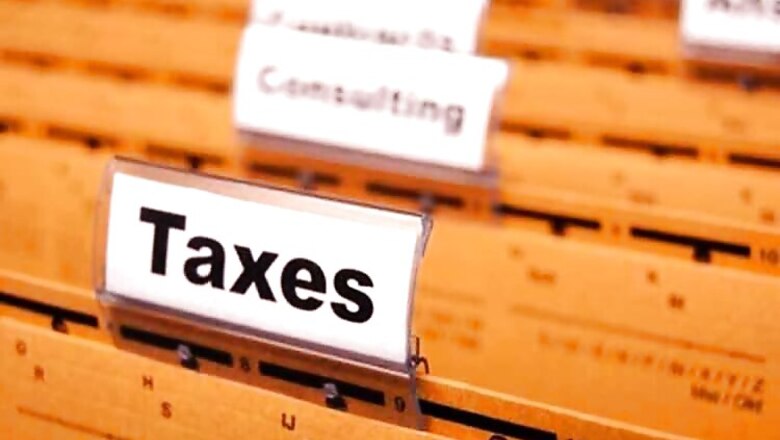
views
New Delhi: With focus on Make in India, the government on Monday announced steps, including tax on imported accessories such as mobile chargers and phone motherboards, which experts say will take IT hardware sector from assembling products to manufacturing with higher value addition.
While presenting the Budget for 2016-17, Finance Minister Arun Jaitley said suitable changes are proposed to be made in customs and excise duty rates on certain inputs, raw materials, intermediaries and components and certain other goods.
This will "reduce costs and improve competitiveness of domestic industry in sectors" like IT hardware, capital goods, defence production and textiles among others, he said. The Budget proposes to withdraw Basic Customs Duty (BCD) (10 per cent) and Countervailing duties (CVD) (12.5 per cent) exemptions on imports of chargers, adaptors, battery, wired headsets and speakers used in mobile phones.
The Budget also waived basic custom duty and special additional duty (SAD) for machinery and equipment that will be used for making electronic chips or semiconductor in India. Also, the minister announced 10 per cent tax on income from worldwide exploitation of patents developed and registered in India.
"Government has imposed duty on products like chargers, battery used with mobile phones and waived duty on components used to make them. This makes strong case for making them in India. Those who will import them will need to pay 12.5 excise duty and domestic makers will have to pay 2 per cent," Indian Cellular Association National President Pankaj Mohindroo said.
He said that around 29 per cent tax will be levied on components that will be imported.
With a view to move towards value added manufacturing of mobile phones and computers, the government announced special additional duty of 2 per cent and 4 per cent, respectively, on circuit boards used in manufacturing.
"This will make mobile handset expensive by 1 per cent. We will request government to reconsider it," Mohindroo said. MAIT Senior Vice President Nitin Kunkolienker said the duty on PCBs for personal computers will have a minimal impact and it may encourage some players to buy these inputs locally.
He also said that the change in duty structure will encourage manufacturing of consumer premise equipment like modems, routers, digital video recorder, STB for internet, IP camera. "We expect investment of about Rs 10,000 crore for their local production."
"I expect their prices will go down by 8 per cent in first year and by 10 per cent in one and half year," he added.
"Exemption of basic customs duty and SAD for ATMP for semiconductor wafer fabrication and LCD fabrication is a very well planned move and will certainly give a boost to local manufacturing especially to SMEs," IESA President MN Vidyashankar said.
The budget also provided clarification over tax to be levied on import of 4G telecom equipment. Companies importing 4G equipment, gears for internet based calling services etc will have to pay to 10 per cent tax.
Electronics component makers body ELCINA said, "There is a clear indication that the differential duty structure for mobiles and tablets which was introduced last year is being taken to the next level by including components and parts for chargers, batteries, wired head sets and speakers to nil duty on actual user condition."
ELCINA Secretary General Rajoo Goel, however, expressed concern on waiving duty from electronic components.
"One challenge which would confront local manufacturers of components is that all components, parts and inputs had been brought to nil BCD, CVD and SAD and this could create obstacles for them," Goel said.
In the last Budget, the government announced excise duty structure for mobile handsets at 1 per cent without Cenvat credit, or 12.5 per cent with Cenvat credit.
Under the duty structure, imported goods attract 12.5 per cent duty. However domestic manufacturers are required to pay 1 per cent duty if they do not avail CENVAT (Central Value Added Tax) credit on taxes paid on inputs.
The duty structure led to over 90 per cent jump in manufacturing of smartphones in India.
The world's biggest contract manufacturer Foxconn led the investment followed by mobile handset companies like Xiaomi, HTC, Datawind, started producing their devices locally. However, most of the companies import ready made
circuits to assemble phones here.
The Budget memorandum also said "in order to encourage indigenous research and development (R&D) activities and to make India a global R&D hub, the government has decided to put in place a concessional taxation regime for income from patents".
"This is an evolution of India's financial and taxation dispensation where true creation of IPR, innovation by way of technology support have been recognised. Now, income tax of 10 per cent will be levied on person owning patent registered in India and exploiting abroad instead of 30 per cent earlier," Mohindroo said.
















Comments
0 comment